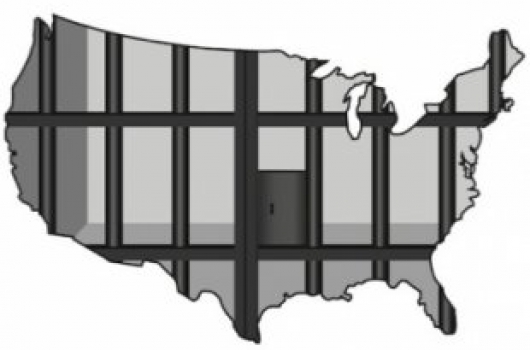The New Jim Crow: A Resource on Mass Incarceration

I teach a senior seminar class every semester at Bellarmine University. The name of the class is “Social Justice in the City.” We cover several related topics, visit programs at work in the city and those involved with particular issues of social justice and do some volunteer work in the community. Invariably, in the reflection papers my students are asked to write, they comment how these experiences are “eye-opening.” I comment on their reflections and remind them that education and awareness of issues are important first steps to social change. But without action, they are merely mental exercises. To bring about significant social change, one must act upon the information acquired.
I have discovered that many in our churches are unaware of the crisis in our country that has been now commonly termed, “mass incarceration.” We have more people in prisons and jails than any other country in the world. One in one hundred Americans are under some type of corrections supervision—jail, prison, probation or parole. Even more scandalous is the fact that a disproportionate number of those incarcerated are people of color.
The New Jim Crow: Mass Incarceration in the Age of Colorblindness
An excellent introduction to this serious concern is, The New Jim Crow: Mass Incarceration in the Age of Colorblindness, by Michelle Alexander (2010). It is making the rounds. In Kentucky, a group of those interested in reconciliation have gotten together to read, study and discuss the book. A helpful faith-based study guide has been prepared by the Samuel DeWitt Proctor Conference, Inc. It can be found on line at www.sdpconference.info/ and ordered there.
I suggest getting together a diverse group of interested people to read and study Alexander’s book. It will fulfill the very first step toward initiating the changes that need to take place. Once educated, I am certain the Spirit will guide you into action. People of faith need to be on the forefront of championing justice. It is not only our legacy, but also is our calling.
If you would like more information or advice on getting a study group together, please contact me at prisonministries@nbacares.org. Those already involved in such a study group, I would like to hear what steps you have taken to begin bringing about necessary change.
“[W]hat does the Lord require of you but to do justice, and to love kindness and to walk humbly with your God?” Micah 5:8 (NRSV).
Rev. Dean Bucalos serves as part-time Mission Specialist for NBA Prison and Jail Ministries. Connect with Dean by phone at (502) 396-3543 or by email at prisonministries@nbacares.org.
Story image provided by Shutterstock.com/Linda Bucklin.